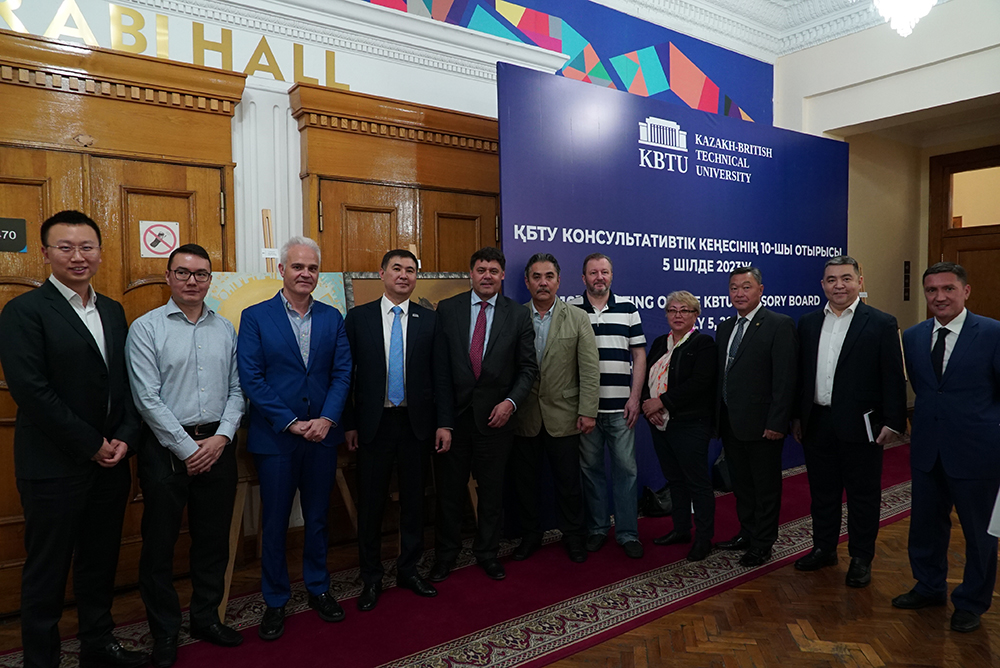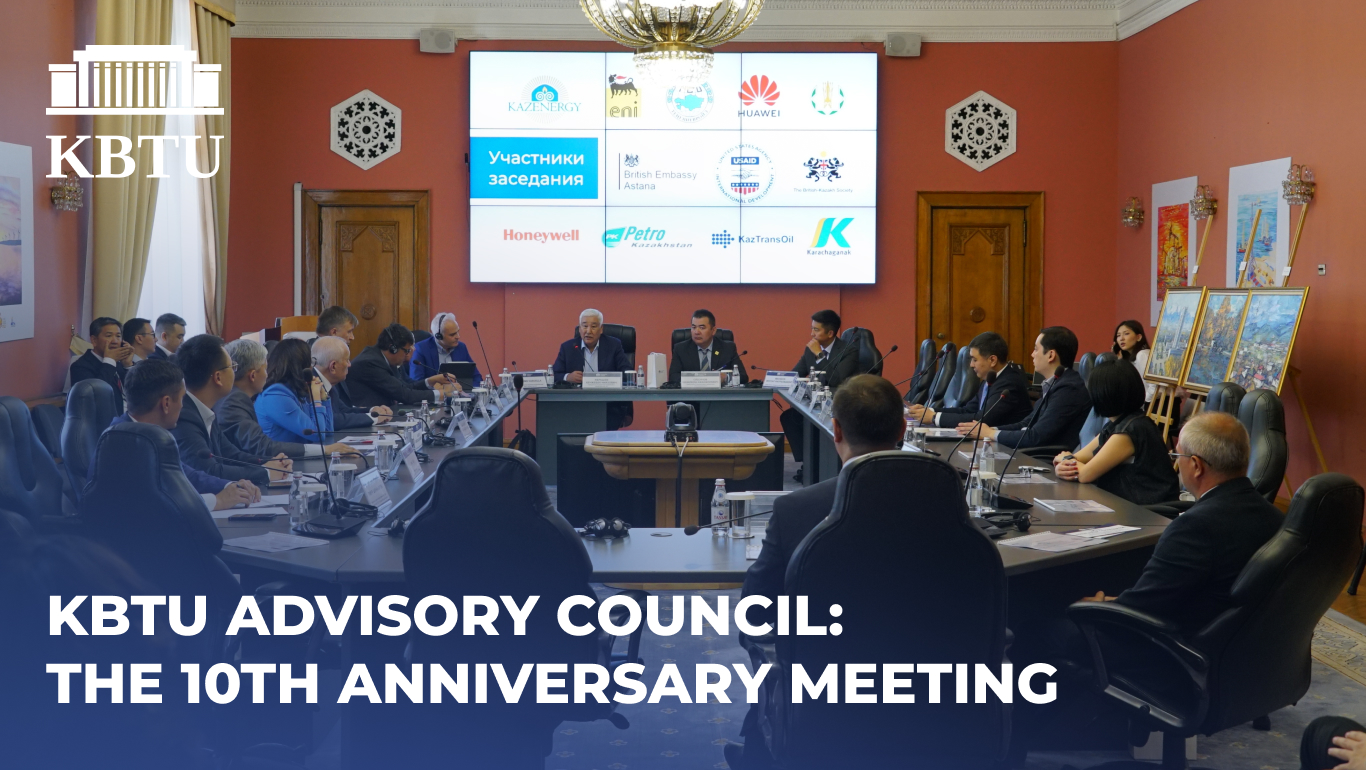The 10th meeting of the Advisory Council of Kazakh-British Technical University (KBTU), which is responsible for guiding educational programs and shaping the university's strategy, was held on July 5 within the university premises. The Advisory Council of KBTU consists of representatives from the British Embassy in Kazakhstan, international organizations, and major companies in the fields of oil and gas, energy, finance, and oilfield services in Kazakhstan. In addition to discussing the prospects of scientific and educational programs, the meeting covered topics such as energy transition, hydrogen projects, climate education, and decarbonization of the educational system. Since 2018, the Advisory Council's objective has been to strengthen the connection and effectiveness of cooperation between KBTU and the business industry in terms of developing human capital and improving the quality of scientific and educational activities at the university.
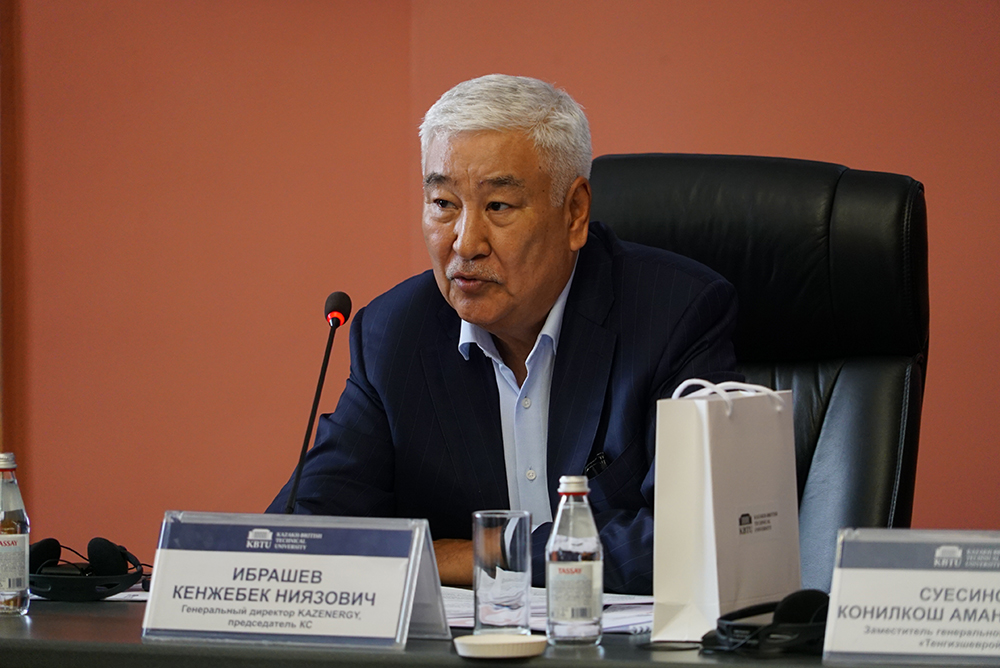 Kenzhebek Ibrashev, Chairman of the Advisory Board of KBTU and General Director of the KAZENERGY Association, noted that KBTU, as the leading technical university in the Central Asian region, not only produces highly qualified specialists but also conducts relevant research and serves as a platform for international conferences discussing issues and solutions related to transitioning national economies in Central Asia toward sustainable energy systems. "Recently, the project presented by KBTU scientists scored the highest marks during the consideration of funding grants by the Committee of Science in the National Council. This demonstrates the effectiveness of our work and the university's correct direction. The next logical step in the university's development is to enhance scientific and educational competencies in the field of energy transition," said the Chairman of the Advisory Council.
Kenzhebek Ibrashev, Chairman of the Advisory Board of KBTU and General Director of the KAZENERGY Association, noted that KBTU, as the leading technical university in the Central Asian region, not only produces highly qualified specialists but also conducts relevant research and serves as a platform for international conferences discussing issues and solutions related to transitioning national economies in Central Asia toward sustainable energy systems. "Recently, the project presented by KBTU scientists scored the highest marks during the consideration of funding grants by the Committee of Science in the National Council. This demonstrates the effectiveness of our work and the university's correct direction. The next logical step in the university's development is to enhance scientific and educational competencies in the field of energy transition," said the Chairman of the Advisory Council.
Maratbek Gabdullin, Rector of Kazakh-British Technical University, discussed the university's recent achievements in education and increasing international cooperation. Among 2,000 educational programs in Kazakhstan, six KBTU programs ranked first. These programs include control automation, computer technology, software, oil and gas business, management, and economics. 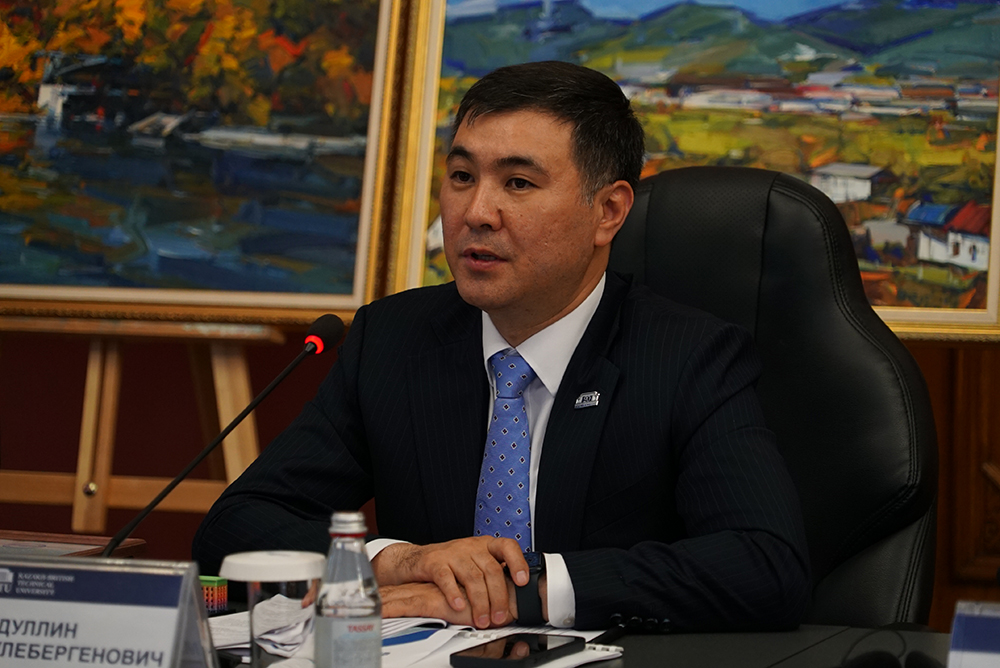 The university continues to expand its international cooperation, particularly with the University of London. KBTU offers two master's degree programs in Industrial Project Management and Engineering in partnership with ENI. Additionally, the university has joint programs in geology and oil and gas business with the International School of Management in the USA, chemical engineering with the French National School of Mines, and collaboration with the Kazakhstan Maritime Academy. KBTU is also involved in projects with the University of Cambridge and the Cavendish laboratory to establish a superconductors laboratory. This year, a joint course for undergraduates was launched in collaboration with MIT University's Sloan Management School. "In terms of energy projects, we are manufacturing solar panels within our university. In the Special Economic Zone PIT Alatau, we have already assembled a small-capacity mini power plant of 40 kW, fully domestically produced. We have also initiated joint production with the Institute of Catalysis Fuel and Electrochemistry for oil heating furnace neutralizers, as well as projects related to wind energy and hydrogen energy in partnership with the Kazakh-British community. For undergraduates, we are launching a new educational program in the field of Energy Transition in the Petroleum Industry," noted the rector.
The university continues to expand its international cooperation, particularly with the University of London. KBTU offers two master's degree programs in Industrial Project Management and Engineering in partnership with ENI. Additionally, the university has joint programs in geology and oil and gas business with the International School of Management in the USA, chemical engineering with the French National School of Mines, and collaboration with the Kazakhstan Maritime Academy. KBTU is also involved in projects with the University of Cambridge and the Cavendish laboratory to establish a superconductors laboratory. This year, a joint course for undergraduates was launched in collaboration with MIT University's Sloan Management School. "In terms of energy projects, we are manufacturing solar panels within our university. In the Special Economic Zone PIT Alatau, we have already assembled a small-capacity mini power plant of 40 kW, fully domestically produced. We have also initiated joint production with the Institute of Catalysis Fuel and Electrochemistry for oil heating furnace neutralizers, as well as projects related to wind energy and hydrogen energy in partnership with the Kazakh-British community. For undergraduates, we are launching a new educational program in the field of Energy Transition in the Petroleum Industry," noted the rector.
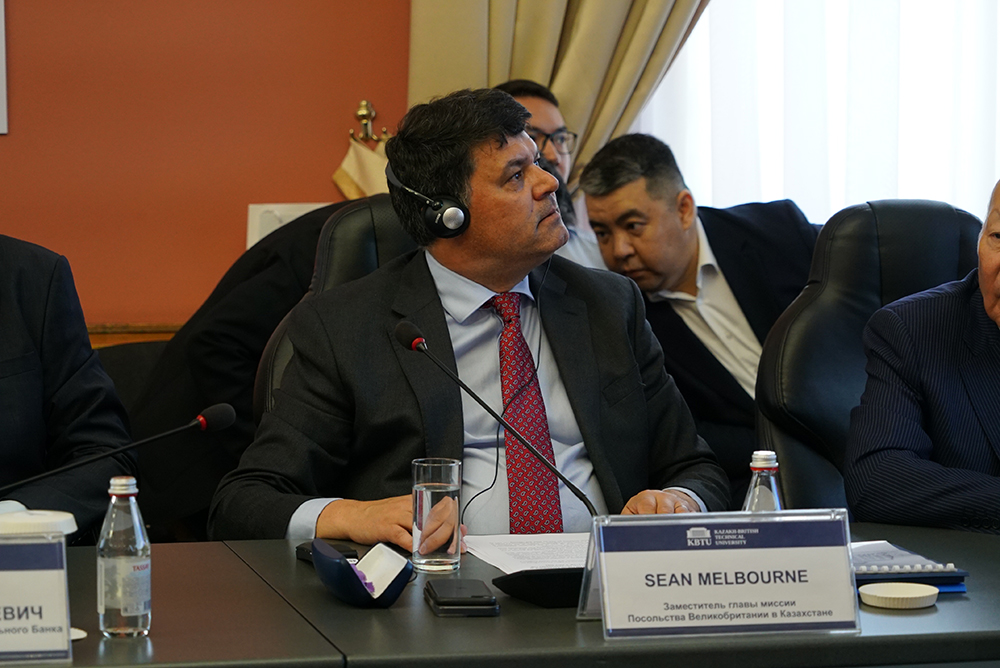 Sean Melbourne, Deputy Head of Mission at the British Embassy in Kazakhstan, emphasized the importance of incorporating climate education into university programs: "Climate change is a significant challenge, but it can be addressed through politics, technology, and youth. In April 2022, the UK Department of Education published a strategy for sustainable climate change in the education system. The strategy, developed with the involvement of youth and industry representatives, is designed until 2030. It encompasses climate education, environmental career skills, digital infrastructure, and supply chain operations... Linking climate issues to the education system is crucial. When students understand, research, and adhere to all the rules for maintaining a sustainable climate, the need for concerns about investments diminishes."
Sean Melbourne, Deputy Head of Mission at the British Embassy in Kazakhstan, emphasized the importance of incorporating climate education into university programs: "Climate change is a significant challenge, but it can be addressed through politics, technology, and youth. In April 2022, the UK Department of Education published a strategy for sustainable climate change in the education system. The strategy, developed with the involvement of youth and industry representatives, is designed until 2030. It encompasses climate education, environmental career skills, digital infrastructure, and supply chain operations... Linking climate issues to the education system is crucial. When students understand, research, and adhere to all the rules for maintaining a sustainable climate, the need for concerns about investments diminishes."
The USAID Energy in Central Asia Project supports educational institutions and provides capacity building for stakeholders and professionals in Kazakhstan and Central Asia. As part of this support, a modern course on renewable energy sources (RES) has been developed and is available at KBTU for undergraduate and graduate students.
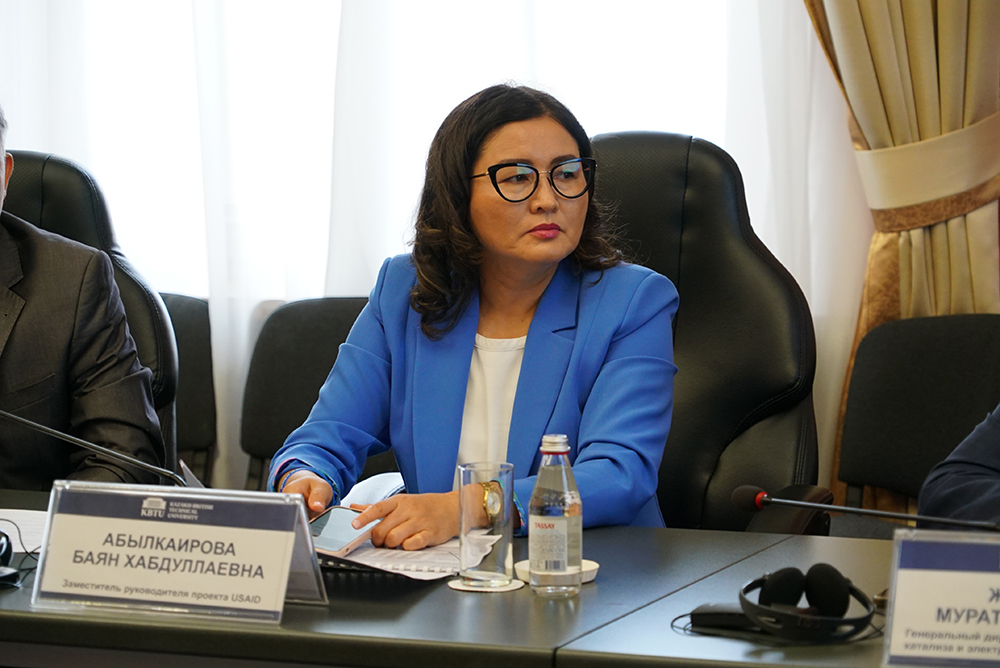 Bayan Abylkairova, USAID Deputy Project Manager, elaborated on this: "We are focused on ensuring energy security in the five countries of the region, as well as on aligning regional and national energy priorities. We also support Central Asian countries in deriving economic benefits from regional electricity trade. To enhance regional cooperation and interaction, a training course has been jointly developed with KBTU, which has also been implemented at universities in Tajikistan and the Kyrgyz Republic."
Bayan Abylkairova, USAID Deputy Project Manager, elaborated on this: "We are focused on ensuring energy security in the five countries of the region, as well as on aligning regional and national energy priorities. We also support Central Asian countries in deriving economic benefits from regional electricity trade. To enhance regional cooperation and interaction, a training course has been jointly developed with KBTU, which has also been implemented at universities in Tajikistan and the Kyrgyz Republic."
Nicholas Pomeroy, representative of the British-Kazakh Society, provided detailed insights into the joint project with KBTU regarding the study and utilization of hydrogen, highlighting its effectiveness and possibilities. He stated, "Hydrogen is one of the most promising areas in the energy sector today. Numerous projects are being launched in Kazakhstan as well. Therefore, analytics and research are essential. In the future, a hydrogen laboratory needs to be established at KBTU, focusing on areas such as synthesis, transportation, composite materials, and technologies for hydrogen storage."
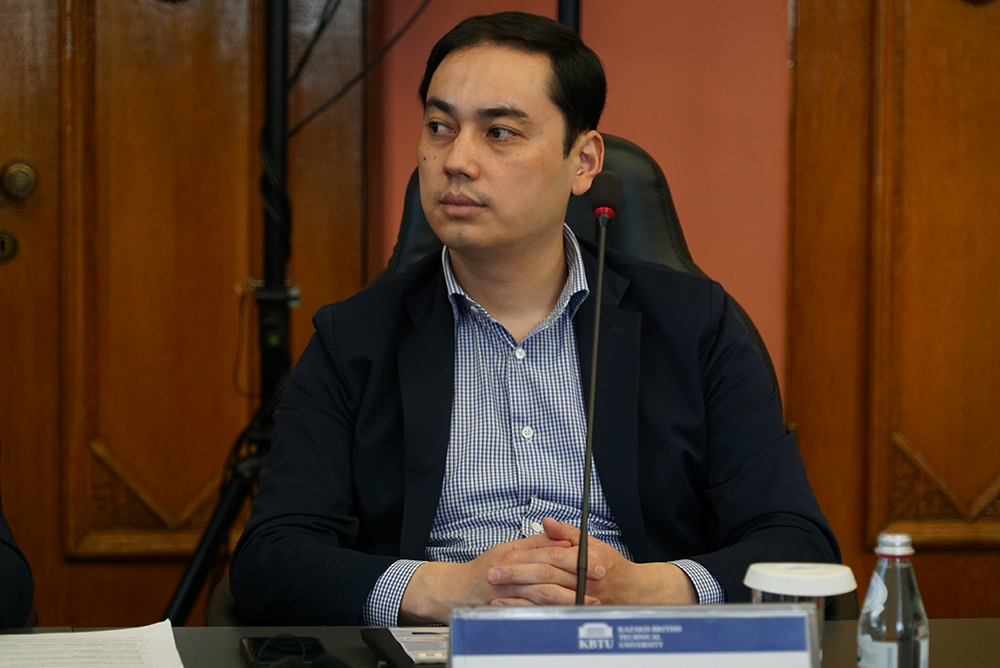 Daniyar Nassipov, Director of APP Stream, presented Caspian Oil at the board meeting. Since the beginning of May, Caspian Oil JSC and KBTU have been planning to establish a training ground in the Special Economic Zone PIT Alatau. "The ultimate goal of the project is to develop a model of the field, taking into account reserves, statics, and hydrodynamics. All wells will be automated, and the necessary technology will be implemented to train students at the testing site. It will include installations, oil production simulations, and training classes. The aim is to fully simulate oil production and replicate the production process, enabling students to learn about technological processes in real-time," emphasized Daniyar Nassipov.
Daniyar Nassipov, Director of APP Stream, presented Caspian Oil at the board meeting. Since the beginning of May, Caspian Oil JSC and KBTU have been planning to establish a training ground in the Special Economic Zone PIT Alatau. "The ultimate goal of the project is to develop a model of the field, taking into account reserves, statics, and hydrodynamics. All wells will be automated, and the necessary technology will be implemented to train students at the testing site. It will include installations, oil production simulations, and training classes. The aim is to fully simulate oil production and replicate the production process, enabling students to learn about technological processes in real-time," emphasized Daniyar Nassipov.
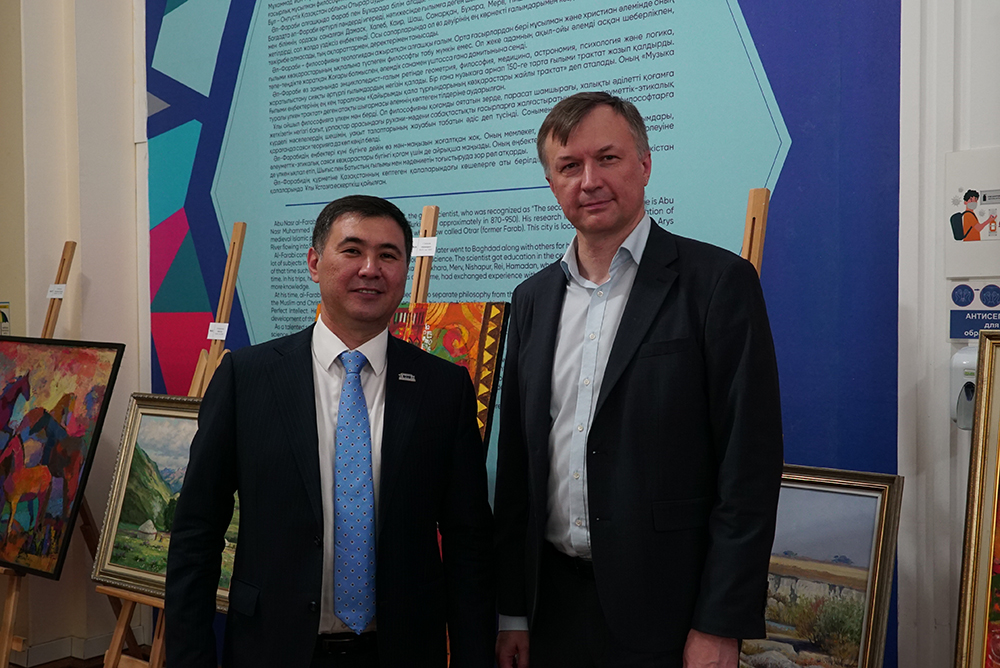 Furthermore, the Advisory Council announced the academic cooperation between the National Bank of the Republic of Kazakhstan and KBTU for master's educational programs in the following areas starting from the 2023-2024 academic year: "Financial Risk Management and Data Science," "Macrofinance and Data Science," and "Financial Technologies."
Furthermore, the Advisory Council announced the academic cooperation between the National Bank of the Republic of Kazakhstan and KBTU for master's educational programs in the following areas starting from the 2023-2024 academic year: "Financial Risk Management and Data Science," "Macrofinance and Data Science," and "Financial Technologies."
"The National Bank, as a monetary regulator and an independent institution, has a strong interest in training highly qualified personnel who possess deep interdisciplinary competencies in the fields of economics, finance, mathematics, programming, and data science. KBTU has a high academic and scientific reputation in these areas," emphasized Vitaliy Tutushkin, Deputy Chairman of the NBRK.
At the end of the Advisory Council meeting, the discussions were summarized, and relevant recommendations were adopted: "Conduct a study and prepare proposals for utilizing the educational and research processes of the university in the following areas: UK experience in climate education development, implementation of USAID's experience in developing educational programs on energy transition and renewable energy, and alternative energy solutions through hydrogen projects."
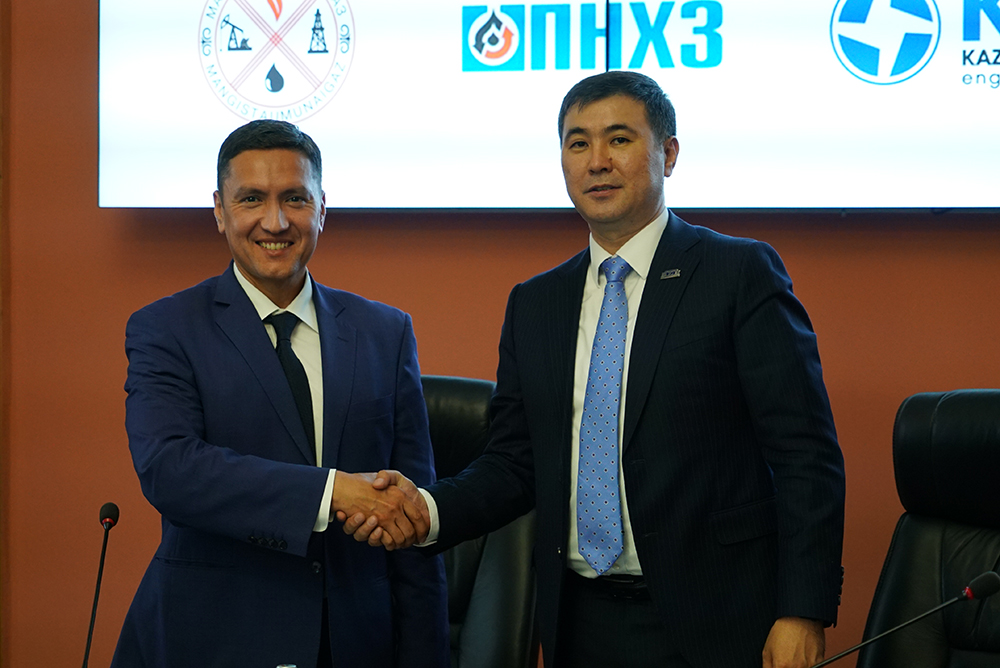 Letters of thanks were presented to the British Embassy in Kazakhstan, the USAID Energy of Central Asia project, and the National Bank of the Republic of Kazakhstan for their support of KBTU initiatives. Memorandums of cooperation were also signed with Mobile Telecom-Service and the Union of Artists of the Republic of Kazakhstan.
Letters of thanks were presented to the British Embassy in Kazakhstan, the USAID Energy of Central Asia project, and the National Bank of the Republic of Kazakhstan for their support of KBTU initiatives. Memorandums of cooperation were also signed with Mobile Telecom-Service and the Union of Artists of the Republic of Kazakhstan.
We believe that the introduction and development of 5G mobile communications by Mobile Telecom-Service, along with the overall development of the 5G industry ecosystem, will not only transform the mobile communications landscape but will also significantly impact the country's economy by creating unique digital opportunities and fostering the development of innovative technologies.
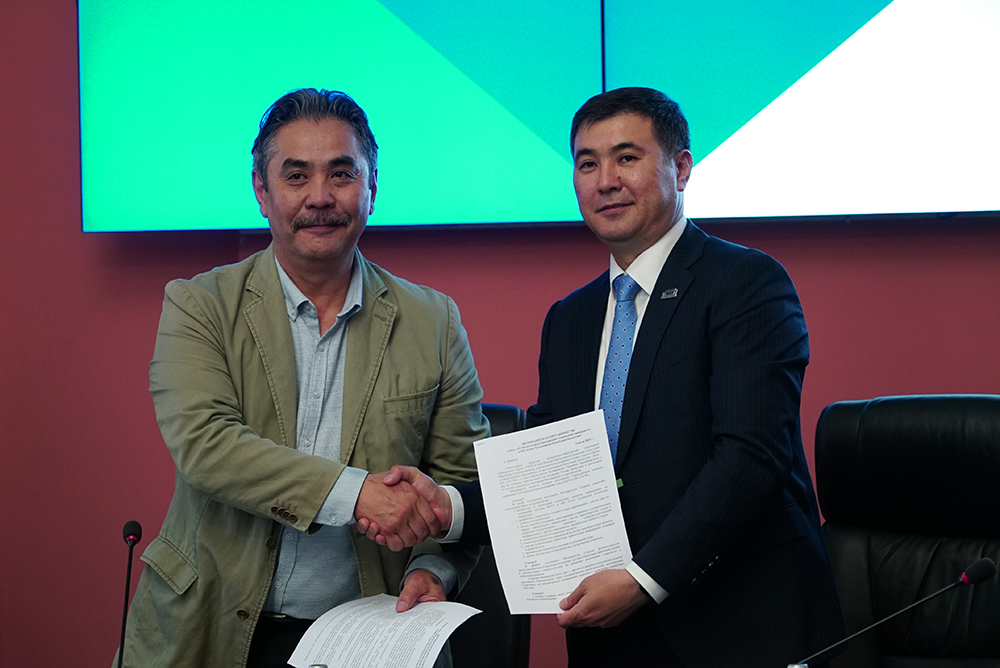 Additionally, we would like to acknowledge that this year marks the 90th anniversary of our partners, the Union of Artists, which is the country's first professional creative organization comprising over 1,200 professional artists. KBTU, situated in the historical center of the country's cultural capital, strongly supports the development of the creative industry, fostering synergy between economic experts, business founders, and cultural and art figures.
Additionally, we would like to acknowledge that this year marks the 90th anniversary of our partners, the Union of Artists, which is the country's first professional creative organization comprising over 1,200 professional artists. KBTU, situated in the historical center of the country's cultural capital, strongly supports the development of the creative industry, fostering synergy between economic experts, business founders, and cultural and art figures.
